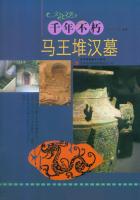_Persiflage_ was the character of their whole mind; adoration had nowhere a place in it. Yet see! The old man of Ferney comes up to Paris; an old, tottering, infirm man of eighty-four years. They feel that he too is a kind of Hero; that he has spent his life in opposing error and injustice, delivering Calases, unmasking hypocrites in high places;--in short that _he_ too, though in a strange way, has fought like a valiant man. They feel withal that, if _persiflage_ be the great thing, there never was such a _persifleur_. He is the realized ideal of every one of them; the thing they are all wanting to be; of all Frenchmen the most French. He is properly their god,--such god as they are fit for. Accordingly all persons, from the Queen Antoinette to the Douanier at the Porte St. Denis, do they not worship him? People of quality disguise themselves as tavern-waiters. The Maitre de Poste, with a broad oath, orders his Postilion, "_Va bon train_; thou art driving M. de Voltaire." At Paris his carriage is "the nucleus of a comet, whose train fills whole streets." The ladies pluck a hair or two from his fur, to keep it as a sacred relic.
There was nothing highest, beautifulest, noblest in all France, that did not feel this man to be higher, beautifuler, nobler.
Yes, from Norse Odin to English Samuel Johnson, from the divine Founder of Christianity to the withered Pontiff of Encyclopedism, in all times and places, the Hero has been worshipped. It will ever be so. We all love great men; love, venerate and bow down submissive before great men: nay can we honestly bow down to anything else? Ah, does not every true man feel that he is himself made higher by doing reverence to what is really above him? No nobler or more blessed feeling dwells in man's heart. And to me it is very cheering to consider that no sceptical logic, or general triviality, insincerity and aridity of any Time and its influences can destroy this noble inborn loyalty and worship that is in man. In times of unbelief, which soon have to become times of revolution, much down-rushing, sorrowful decay and ruin is visible to everybody. For myself in these days, I seem to see in this indestructibility of Hero-worship the everlasting adamant lower than which the confused wreck of revolutionary things cannot fall. The confused wreck of things crumbling and even crashing and tumbling all round us in these revolutionary ages, will get down so far; _no_ farther. It is an eternal corner-stone, from which they can begin to build themselves up again. That man, in some sense or other, worships Heroes; that we all of us reverence and must ever reverence Great Men: this is, to me, the living rock amid all rushings-down whatsoever;--the one fixed point in modern revolutionary history, otherwise as if bottomless and shoreless.
So much of truth, only under an ancient obsolete vesture, but the spirit of it still true, do I find in the Pagani** of old nations. Nature is still divine, the revelation of the workings of God; the Hero is still worshipable: this, under poor cramped incipient forms, is what all Pagan religions have struggled, as they could, to set forth. I think Scandinavian Pagani**, to us here, is more interesting than any other. It is, for one thing, the latest; it continued in these regions of Europe till the eleventh century: eight hundred years ago the Norwegians were still worshippers of Odin. It is interesting also as the creed of our fathers;the men whose blood still runs in our veins, whom doubtless we still resemble in so many ways. Strange: they did believe that, while we believe so differently. Let us look a little at this poor Norse creed, for many reasons. We have tolerable means to do it; for there is another point of interest in these Scandinavian mythologies: that they have been preserved so well.
In that strange island Iceland,--burst up, the geologists say, by fire from the bottom of the sea; a wild land of barrenness and lava; swallowed many months of every year in black tempests, yet with a wild gleaming beauty in summertime; towering up there, stern and grim, in the North Ocean with its snow jokuls, roaring geysers, sulphur-pools and horrid volcanic chasms, like the waste chaotic battle-field of Frost and Fire;--where of all places we least looked for Literature or written memorials, the record of these things was written down. On the seabord of this wild land is a rim of grassy country, where cattle can subsist, and men by means of them and of what the sea yields; and it seems they were poetic men these, men who had deep thoughts in them, and uttered musically their thoughts. Much would be lost, had Iceland not been burst up from the sea, not been discovered by the Northmen! The old Norse Poets were many of them natives of Iceland.















